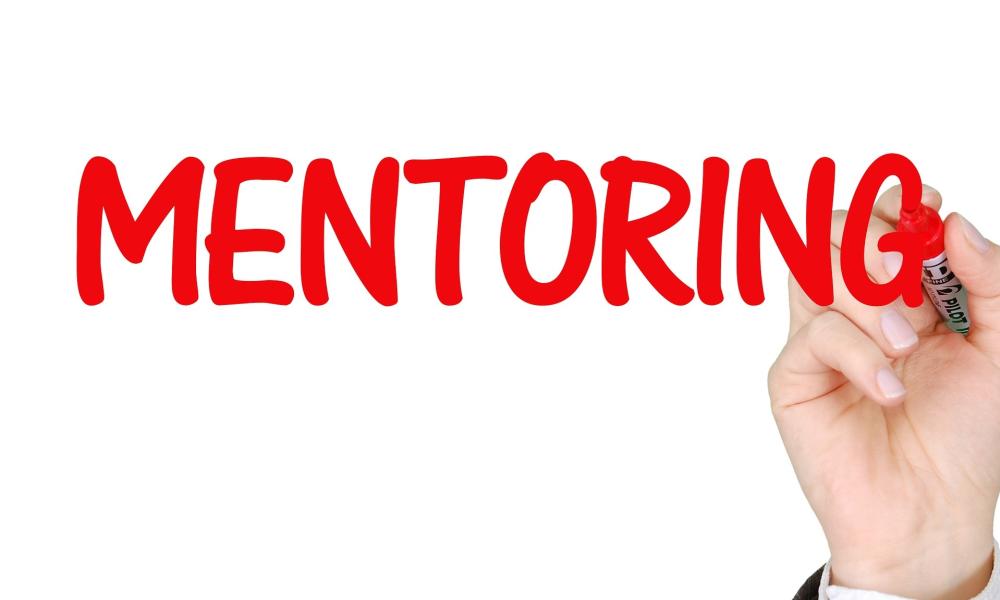The value of sysadmin to sysadmin mentorship

Recently, I was challenged to talk about my mentors and mentorship in general—why it's important to exchange knowledge and experience, and in what ways it can improve the journey forward. I didn't have to think twice about the person I considered my mentor, and soon enough, I realized that for my entire career, I have also had another fantastic mentor. The person, who actually was my second mentor, came about during a time in my life when I had some particularly challenging years. However, I don’t think I would have met my second mentor if not for the first one. This is the story about both of them.
My first mentor—curiosity
My first mentor emerged as I was working my principal year as a system administrator for Lotus Notes. I had learned how to manage the servers and databases through studies, but I was a novice when it came to networking, and I would often hear from the infrastructure engineers that the loss of connectivity was due to errors in Lotus Notes. I knew I had to learn about networking, or I would always end up with the short end of the stick in these discussions. So I went out and bought a 500-page book about TCP/IP and unknowingly started on the next leg of my journey as a sysadmin. My aim was not to become a network administrator. I really wanted to be able to have qualified discussions with the infra guys instead of being brushed off as an ignorant nuisance.
Things did indeed change. I found tools and methods to show exactly what was wrong, where it went wrong, and, in several cases, why it had gone wrong. I learned the shadowy world of firewalls and the trickery of intelligent routers that would play up as the networks grew and new countries were connected. Modems were replaced by the magic of the Internet, and new connectivity challenges emerged. Getting in contact with new sysadmins, I learned to be curious instead of a know-it-all.
[ Readers also enjoyed: Sysadmin careers: the correlation between mentors and success ]
By being curious, I could learn more, understand things better, and get a wider perspective of why certain things were done in different ways. Being curious also led me to ask exploratory questions; for instance, I would frequently challenge people to explain abbreviations they used in presentations, and often, they did not know, so we would look them up together. Allowing curiosity to guide me, I have qualified for new roles and responsibilities, and the dialogue with colleagues from other disciplines has become much more interesting. I am extremely grateful and hope that same curiosity will stay with me to the end of my days.
My second mentor—Liam
My second mentor did not actually know that I had selected him as my guiding beacon during what was a very challenging and confusing time for me. I had been sent to Asia to build up the corporate network and migrate whatever email systems and collaboration tools they had over to Lotus Notes. I was stationed in Bangkok with my family and had 16 countries to look after. Even though I had been working with some of them online, it was a completely different ballgame to be out there in the sticks, looking at a server in a shower cabinet and having to fix it. I was building up a data center as part of the global infrastructure, working in teams with local sysadmins. These were guys who were used to being king of the hill, and now I gently had to demote them to checking log files without any admin access to the servers. In addition to the hands-on technical work, I was also the IT manager for Asia, and while I am a pretty social person, I had much to learn about culture and management.
That’s when I met Liam, the production plant manager in Singapore. He was a down-to-earth character who knew every nook and cranny of his enormous technical plant. He would walk to the local food court and get his lunch, as opposed to other managers that had their secretaries bring their lunch to the (managers-only) lunchroom. Liam talked to everyone and was adamant when it came to crew safety. He was a hardworking professional with high demands, and yet there was a very human side to everything he did. If there was a problem, he was there, on the ground, talking with people, helping out, discussing, reviewing. Everyone had the greatest respect for him, but they were also not afraid to make their voice heard. The executive board would send him to production plants all over the world whenever things needed fixing or when they had bought a new plant—as had been the case in Singapore, where he had now been for a few years.
Then it happened—a fatal accident at a nearby plant. The board called him, and he was on site the next day. He cared for the relatives, prepared for the funeral, paid his respects, and in the most sincere way, claimed responsibility for what had happened, although he was not the manager when the horrible incident occurred. The next thing he did was to ask the safety officers to provide him with a complete list of everything on the plant that needed attention. The plant in question was relatively small and had never done particularly well in the market. Red numbers had resulted in savings that had eventually compromised staff safety.
The list of things to fix was long, and he started methodically attending to each and every line item. At the same time, he went through the plant product portfolio and decided to discontinue some products in favor of others. He understood the market and knew what products were in demand and did not require long haul transports. Six months later, the plant showed a profit AND crew safety was top notch. Liam was respectful, determined, knowledgeable, and curious. It was not until he retired that I told him he had been my mentor. He smiled at me and said I had been a good student.
[ New research from HBR Analytic Services - IT talent strategy: New tactics for a new era ]
Wrapping up
We all have hidden talents and skills that we might just need the right circumstances to uncover. And sometimes, we need the time, nurturing, and guidance that a mentor can provide in order to reach our true potential. Mentors might expose your weaknesses, but they will also provide you with opportunities to improve. Pay attention to your surroundings, treat the unknown with respect, and hold back your initial judgment. Empathy is a strength, never a weakness.
I was lucky to have let curiosity guide me when I was young and even luckier to encounter my mentor in the midst of my career. However, had I not been open-minded, curious, and paid attention even to small details, the entire learning experience might have passed me by.




Joachim Haller
Member of the Red Hat Accelerators and Red Hat Chapter Lead at Capgemini. More about me


